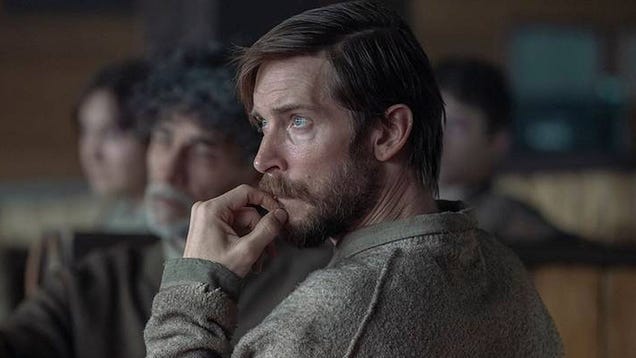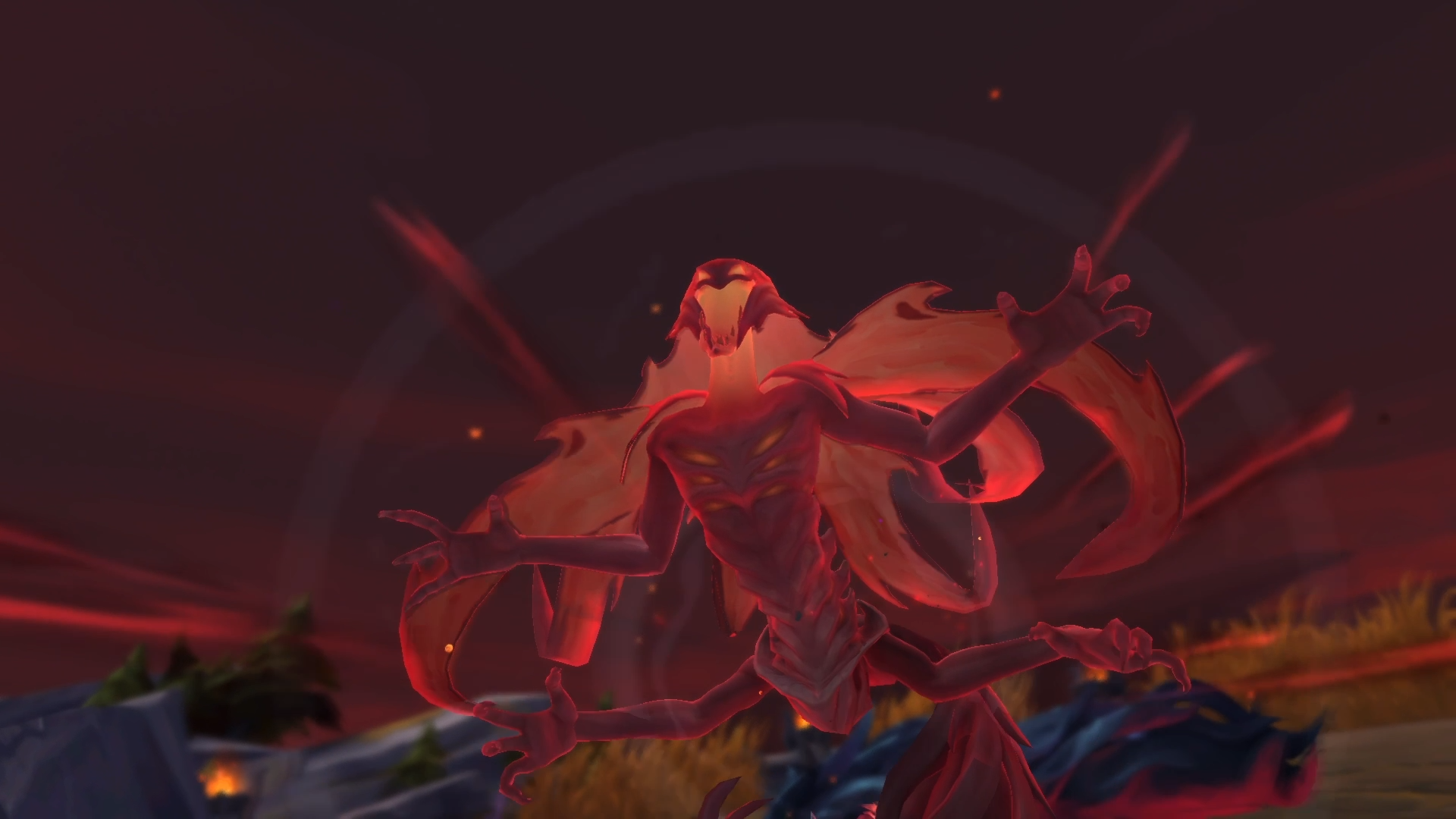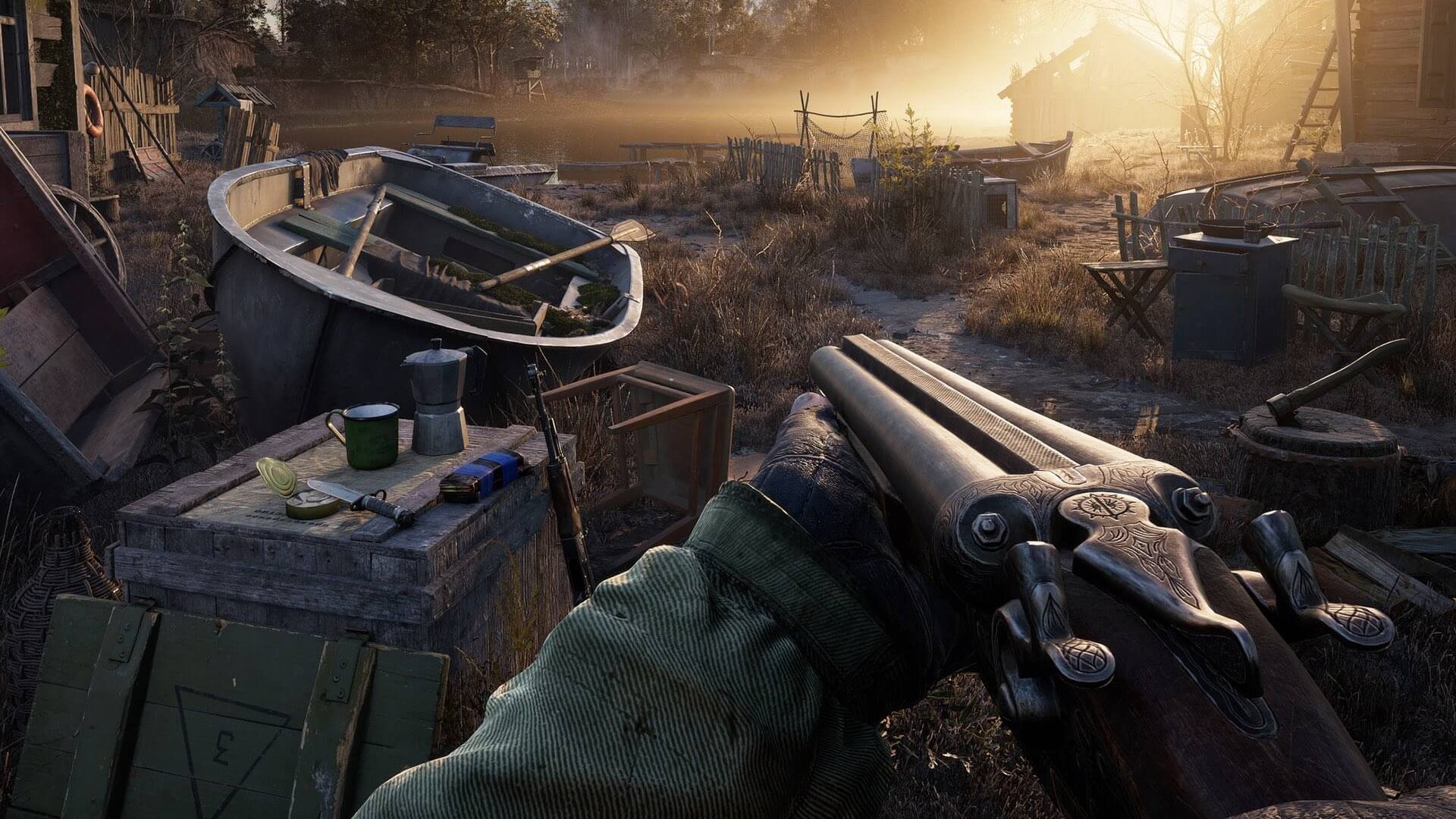
A Real Pain Review
A Real Pain opens in theaters November 1. This review is based on a screening at the 62nd New York Film Festival.
“This is a tour about pain.” So says James (Will Sharpe), the guide leading cousins David (Jesse Eisenberg) and Benji Kaplan (Kieran Culkin) on a Holocaust remembrance tour in A Real Pain. Jesse Eisenberg’s excellent sophomore feature as writer and director is certainly being literal here. By visiting these sites of atrocity in Poland, David and Benji seek to uncover the history they can no longer share with their recently deceased grandmother, one marked by untold and undeserved suffering. And how could you not take James at his word? A trip to see a concentration camp is going to be filled with sorrow even without the personal connection.
All the while, Eisenberg brings us along to ride through the pain that currently exists between David and Benji. We watch as their stark differences – the former put together and kind but ultimately a boring pushover, the latter an undeniably charming mess of a person – bubble up to the surface over the course of a few days spent steeping in the Holocaust and their family history with its impact in Poland. That friction reveals that even family members can only hope to be tourists in each other’s worlds, and that there’s only so much we can do to help our loved ones carry on. With a quiet and confident strength, A Real Pain smartly questions what it means to honor those we’ve lost and the crushing agony of that loss.
The core of this interrogation, and of the film itself, is the connection between the cousins – a totally mismatched pair who still feel cut from the same addled cloth. Thanks to the writing and the performances, Eisenberg and Culkin come across like they’re actually related – a crowning achievement for A Real Pain. They fight like cousins, they joke like cousins, they confide like cousins. Even the physical acting between the duo is full of such tender, gentle familial intimacy – sometimes placed after the most uneasy of moments – that it strikes a real emotional chord: full no-holds-barred hugs, noogies, kisses on the head and the cheek. Despite their obvious differences, David and Benji feel (and Eisenberg and Culkin honestly depict) the deep kinship that has grown with them into men – but that doesn’t mean they always see eye to eye.
In fact, their differences – things like the fact that David is a 9-to-5 ad guy with a wife and kid, while Benji is a 9-to-5 weed smoker with a sofa bed set up in his friend’s basement – become a roadblock, one that’s an inconvenience not just to each other but the group of strangers taking the tour alongside them. Eisenberg’s tight and, at times, tense script opens up his protagonists’ journeys to a gentle scrutiny, one that serves to gently and lovingly force both men to take a hard look at themselves.
The makeup of the tour group roots A Real Pain in a natural sense of community. Marcia (Jennifer Grey), a smart-talking Jewish divorcée from Brooklyn, is hilarious and heartfelt as her sympathies grow for Benji. Diane (Liza Sadovy) and Mark (Daniel Oreskes) are the perfect boring middle-aged Jewish couple, stereotypically put off by Benji’s outbursts on frank and uncomfortable topics like the legacy of Jewish suffering. Kurt Egyiawan is smartly cast as Eloge, a kind survivor of the Rwandan genocide who converted to Judiasm 10 years earlier and brings an unusually fresh perspective. Rounding out the ground is The White Lotus’ Sharpe as the studious and amusing James, the scholarly English tour guide who has his work cut out for him dealing with Benji throughout the trip. The group connects with Benji’s charisma, realness, and the unabashed way he moves through life. Because of this, they feel the need to try to understand him, which culminates in Benji making a scene at a group dinner and excusing himself from the table.
Eisenberg’s decision to cast himself as David really pays off in that scene. He’s left to explain everything that led his cousin down this road and how much it kills him to see Benji squander what could amount to a good life if he tried hard enough – and the way the story just spills out is simply tragic. The aching tears come slow, and then all at once. The heavy pauses and cracking in his voice telegraph a soul tortured by the immense suffering of someone they love. It’s a wallop of a speech that reminds the audience that Eisenberg is one of today’s top talents in front of the camera, behind it, and on the page. In writing himself the straight man role, he graciously gives Culkin the opportunity to go for broke with a zany relentlessness that warrants Eisenberg’s heart-wrenching breakdown at the dinner table. And without the cushion of their traveling companions, the combined neuroses of our protagonists would most likely bubble over, choking us under the weight of living.
That heft is an undeniable force on this tour, emotionally and visually. Two Warsaw trains, like the ones that transported the Nazis’ victims, drive away from one another and remind us of Jewish lives torn apart. Benji, who finds it deeply difficult to reconcile the suffering of his martyred ancestors with the comforts of modern life, is shrouded in distinct, all-encompassing shadow as the group walks through the gas chambers of a well-preserved concentration camp. This scene, like all of A Real Pain, is thoughtfully, delicately shot by cinematographer Michal Dymek, highlighting the anguish that remains in the wake of tragedy.
At one point, the cousins walk along a raised pathway with images of Holocaust-era inhabitants of the village painted on its side, as if they’ve been given a way to step over and ignore the past – and the pain they’ve inherited from it. But there’s treasure to be found in the hurt they’re trying to float above – the lessons the characters and we take away from this personal odyssey. We have to truly live to honor those who came before us – and in honoring our true selves, we honor them. Our pain and the pain of those we love matters. Not all relationships are built to last. As the emotional rollercoaster of A Real Pain shows us, learning these lessons can be challenging work, but that doesn’t mean the journey, as unpredictable and tragic as it can be, isn’t worth experiencing.







